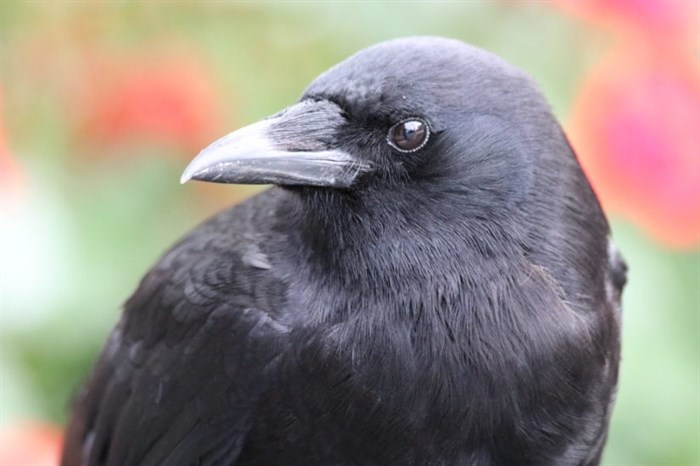
Crow up close
Image Credit: SUBMITTED/Colleen Wilson
May 19, 2020 - 2:49 PM
Whether they're on the ground scouting out their next meal or perched high above cawing amongst themselves, crows are a constant presence in cities across the globe.
So much so, that they just fade into the background of daily existence — or, that's the case until springtime to early summer when nesting season arrives.
"Nesting season is a vulnerable time for babies and parents, with eggs and young chicks at risk of predation. This risk is amplified as fledgling birds begin to leave the nest. For their first few days they can’t fully fly, and rely heavily on their parents to keep them safe as they hop around on the ground and work their flight muscles," the B.C. SPCA said in a press release.
Once baby crows leave the nest, they spend the first few days fluttering from branch to branch within their nest tree as they build up their muscles and flight skills.
"However, in cities we often remove the lower tree branches for safety and visibility," the SPCA said.
"This means these fliers-in-training end up down on the ground, often in quite exposed areas, which increases the need for vigilant parental protection to ward off danger."
So, if you fear a crow dive-bomb is in the offing, the SPCA has a few tips and tricks to ensure you and get out unscathed.
First off, temporarily alter your travel routes during nesting season, to keep a little more distance around known nest sites.
They recommend posting warning signs in high traffic areas and carrying an umbrella as a portable visual barrier to add a little extra distance between you and the concerned parents.
If it all seems a bit much, rest assured that by July crow babies are on their way to independence and their parents are chilling out.
Last, if you spot a young crow in a vulnerable area, or with no adult birds visible in the area, call the B.C. SPCA Provincial Call Centre at 1-855-622-7722 for advice and assistance.
To contact a reporter for this story, email Kathy Michaels or call 250-718-0428 or email the editor. You can also submit photos, videos or news tips to the newsroom and be entered to win a monthly prize draw.
We welcome your comments and opinions on our stories but play nice. We won't censor or delete comments unless they contain off-topic statements or links, unnecessary vulgarity, false facts, spam or obviously fake profiles. If you have any concerns about what you see in comments, email the editor in the link above.
News from © iNFOnews, 2020